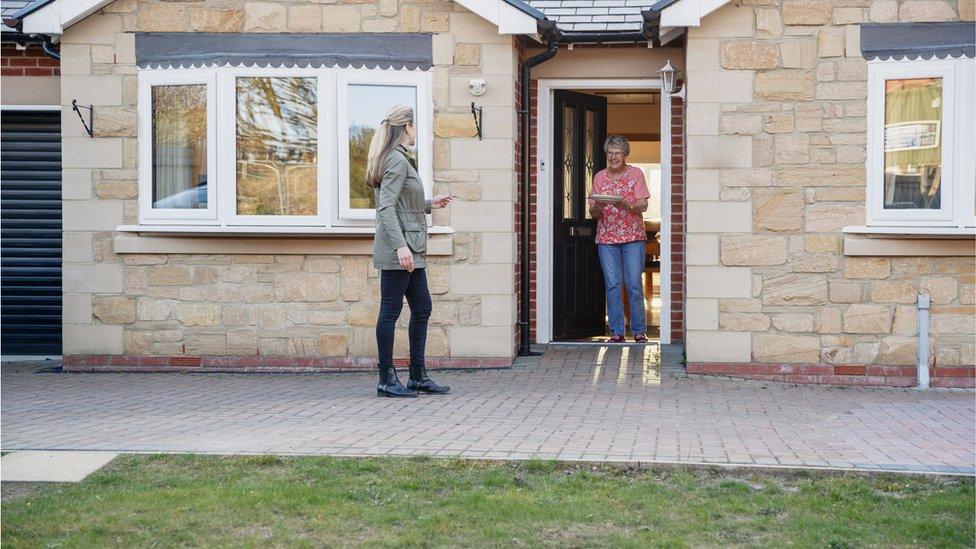Coronavirus: Minister says sport should be 'behind closed doors'
- Published
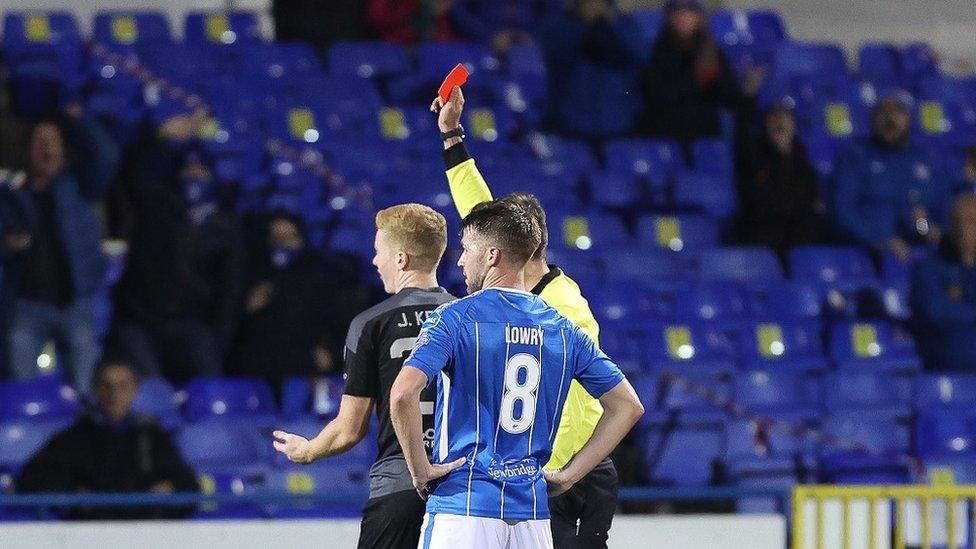
Fans were allowed into the Coleraine Ballymena game on Friday night despite the confusion
The minister responsible for sport in NI wants all games to happen behind closed doors, even though current regulations say some fans can attend.
Carál Ní Chuilín told BBC News NI that fans can "legally" go, but appealed to sporting bodies to close their doors.
New restrictions aimed at combating the spread of Covid-19 in NI came in on Friday. They are to last four weeks.
On Saturday, two further coronavirus-related deaths were reported, bringing the Department of Health total to 610.
Another 1,031 people tested positive for Covid-19, 231 people with the virus are in hospital and 27 of them are in intensive care.
At 18:00 BST on Friday, pubs, restaurants and cafes across NI closed their doors to sit-in customers for the next four weeks.
Executive ministers released the full public health guidance relating to the new restrictions on Friday night, but there was some confusion though over whether spectators could still attend sporting events.
A letter issued to sporting bodies by Minister for Communities Carál Ní Chuilín on Friday evening stated that fans were not permitted to attend under the new Covid-19 regulations.
However, the First Minister Arlene Foster later said that this was not the case.
"The regulations do not ban fans from stadiums," she tweeted.
"The existing position is maintained, permitting a limited number to attend. Preposterous for clubs to be told anything to the contrary."
Allow X content?
This article contains content provided by X. We ask for your permission before anything is loaded, as they may be using cookies and other technologies. You may want to read X’s cookie policy, external and privacy policy, external before accepting. To view this content choose ‘accept and continue’.

The executive announcement came just over an hour before the first match of the new Irish Premiership season.
On Saturday morning, the Irish Football Association issued a statement welcoming the fact that fans "will still be admitted at elite sporting events which are allowed under the regulations".
Later the communities minister, in an interview with BBC News NI, said she had issued her guidance following advice from Northern Ireland's chief medical officer and chief scientific adviser.
"I'm appealing to the sporting bodies to take my advice and to try to play their events behind closed doors because I think we all are trying our best to be safe, to protect lives and to protect each other," said Ms Ní Chuilín.
"I have a duty as minister of sport to ensure that not only are the sporting bodies, the fans, but the general public are protected."
Football at risk
The IFA said that it had worked tirelessly to ensure protocols were in place for the safe return of fans.
Gerard Lawlor, chairman of Cliftonville Football, said the future of football was at risk if they could not let fans into games.
"We need financial support from Stormont and if that's coming we can all sit down together and look at the situation," he said.
"Today we have asked for an urgent meeting with the executive to plan the way forward."
The minster said she was preparing a bid for "substantial money to try and help those clubs", but would bring the issue of supporters at games to her executive colleagues next week.
Ms Ní Chuilín appealed to executive ministers to "do the right thing".
"I cannot ignore the medical and scientific advice. It's really important that we collectively as an executive adhere to that advice."
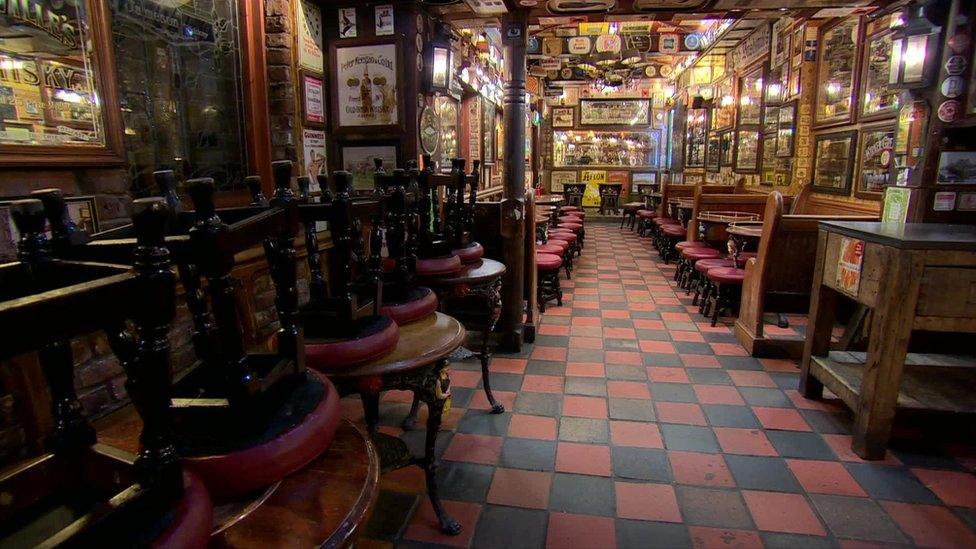
Hospitality businesses will only be allowed to offer takeaway and delivery services for four weeks
What are the new restrictions?
Most of the measures were announced on Wednesday, but the guidance published on Friday night does provide more clarity on which sectors and services will be affected.
As well as the closure of the hospitality sector (apart from deliveries and takeaways), off-licences and supermarkets are not to sell alcohol after 20:00, and fast-food and takeaway premises are to close at 23:00.
There was also confirmation that driving instructors must stop offering lessons and as a result, the Department of Infrastructure has also decided to suspend driving tests.
The department says the 2,500 customers who have booked a test in the next four weeks will have their appointments cancelled, refunded and rescheduled.
However, as driving tests are already booked out until January, some of those affected may not be able to get a slot until February.
Other restrictions laid out in the guidance are:
No indoor sport or organised contact sport involving mixing of households, other than at elite level
No mass events involving more than 15 people (except for allowed outdoor sporting events where the relevant number for that will continue to apply)
Close-contact services such as hairdressers and beauticians to close - apart from those relating to the continuation of essential health interventions and therapeutics
Mobile hairdressers and make-up artists - also classed as close contact services - prohibited from working in homes
Gyms to remain open for individual training but no classes permitted
Places of worship to remain open but face coverings mandatory when entering and exiting
Wedding ceremonies and civil partnerships to be limited to 25 people with no receptions. This will be implemented on Monday 19 October
Funerals to be limited to 25 people with no pre or post-funeral gatherings
Hotels to close, with exemptions for them to offer rooms to essential workers such as workers who need hotels for work-related purposes and "staff on the front line battling Covid"
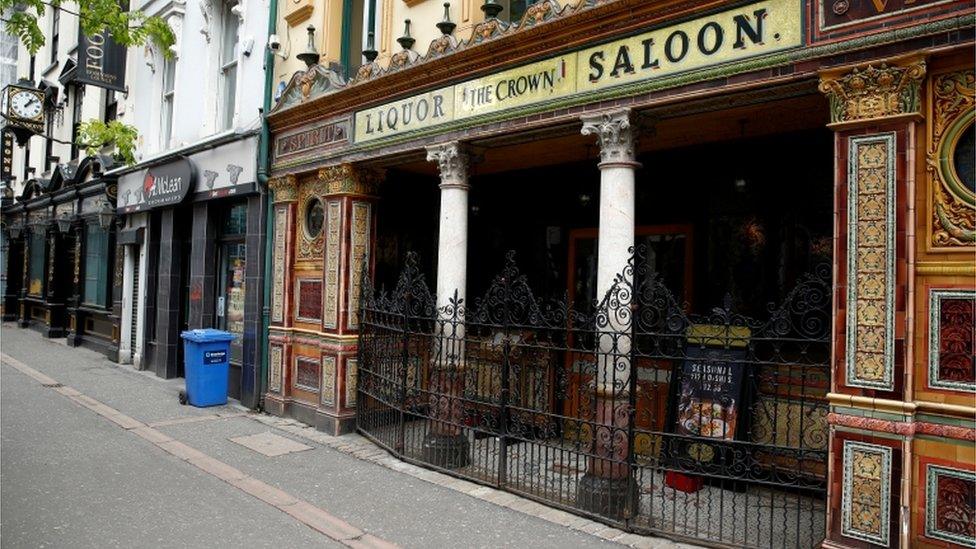
A £35m scheme designed to help the businesses forced to shut will open for applications from Monday and will make payments for every fortnight a business is are closed.
In the Republic of Ireland, eight more Covid related deaths were announced by the Department of Health on Saturday, one of which occurred in June, two in September and five in October.
It brings its death toll to 1,849.
A further 1,276 cases of the virus were confirmed.

Northern Ireland's new restrictions - in 60 seconds


Schools: How are pupils being kept safe?
Weddings: How many people can attend?
Going out: When and how are pubs allowed to open?

- Published17 October 2020
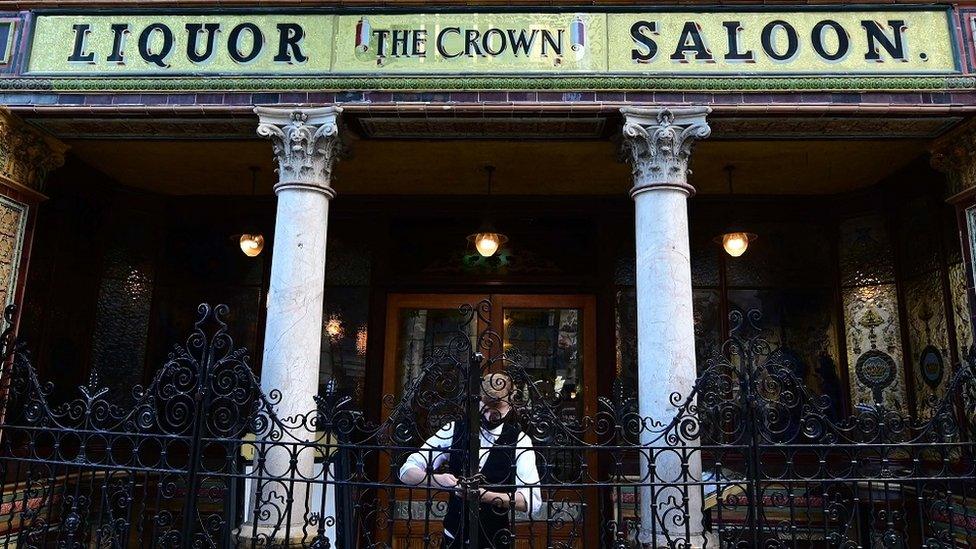
- Published29 July 2021

- Published12 October 2020
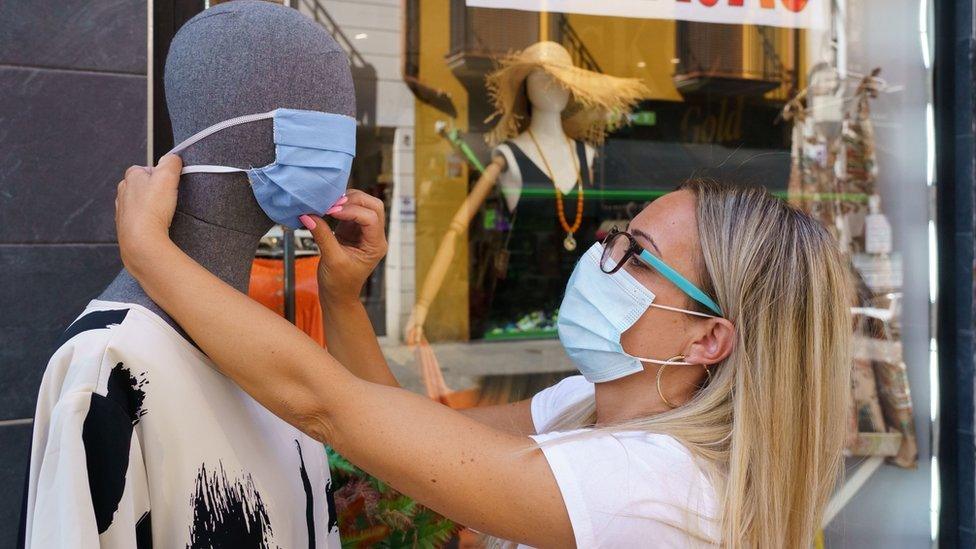
- Published10 October 2020
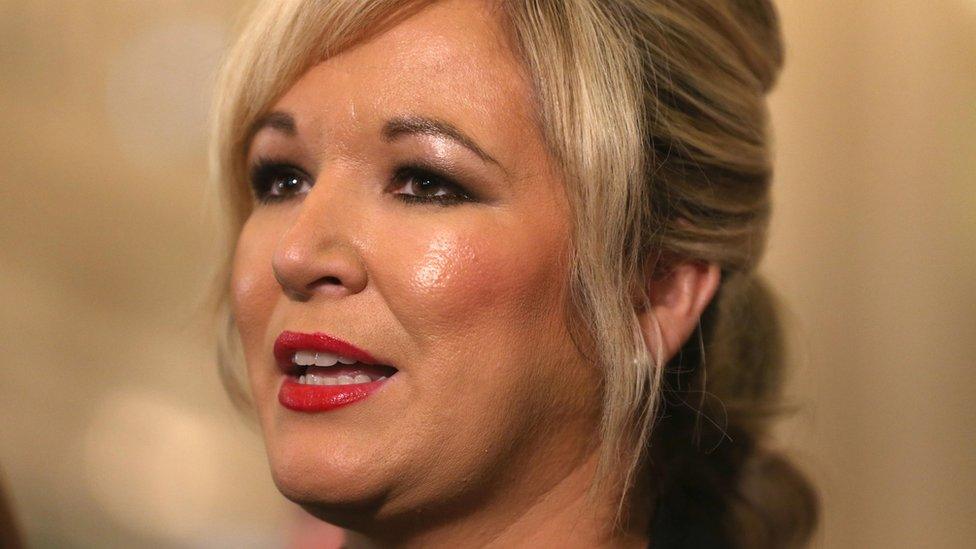
- Published10 October 2020
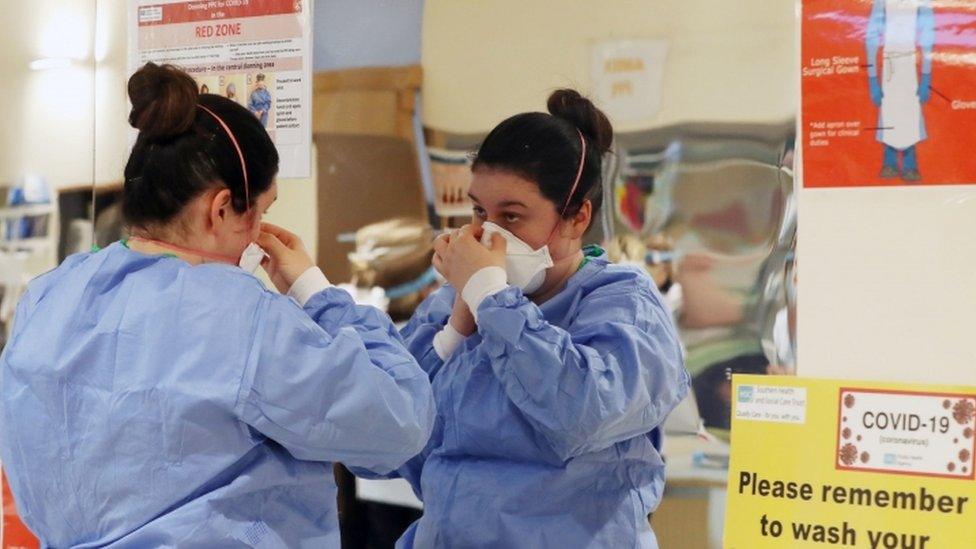
- Published14 October 2020
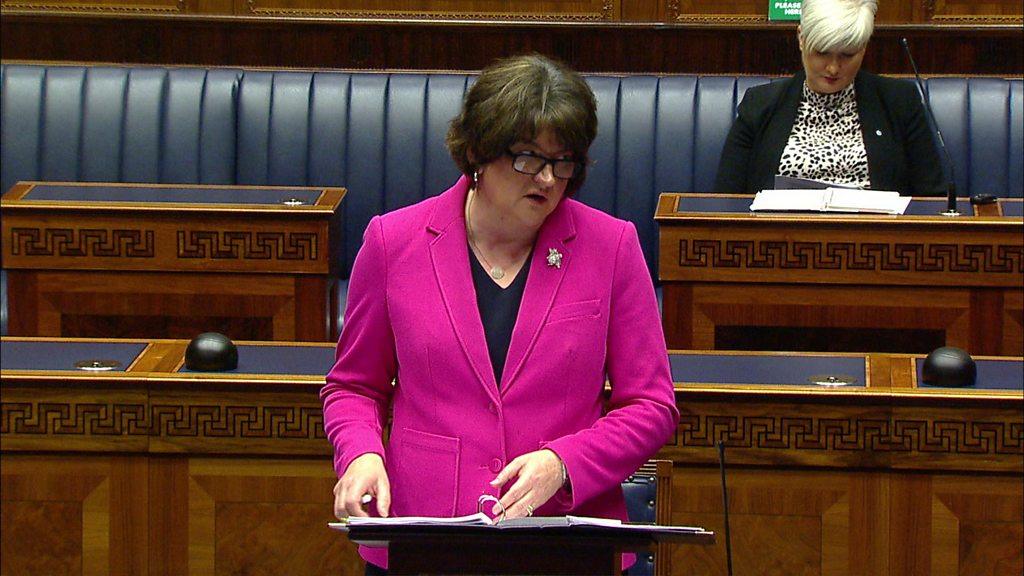
- Published14 October 2020
